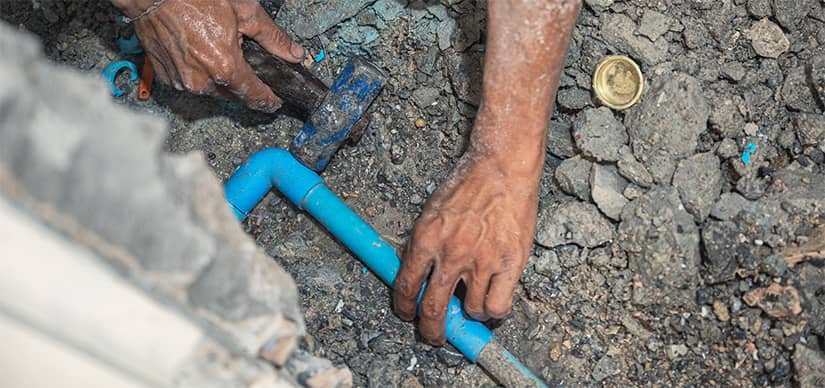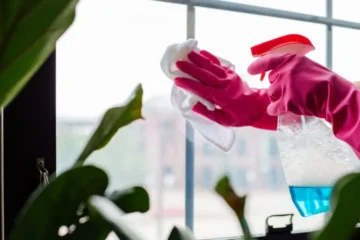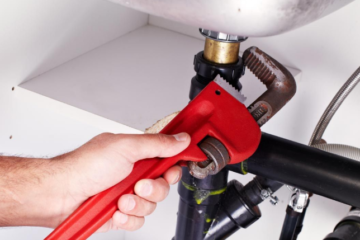Introduction
Living in Orange County, California with a house means enjoying the sun and the company of people. However, there are obligations too, especially in taking care of one’s house. One of the most worrisome problems that any homeowner can face is the possibility of a leak within the foundation of the house and the floor. A leak in the slab can cause great destruction to the structures as well as expensive repairs unless it is fixed within no time. The following guide describes safe methods for identifying as well as repairing any cases of slab leak in order to protect your house and investment.
What is a Slab Leak?
A slab leak occurs when the water pipes that run beneath a home’s concrete foundation develop a leak. These leaks can arise in either hot or cold water lines and often go unnoticed until they cause significant damage. Common causes of slab leaks include:
- Corrosion: Over time, pipes may corrode due to chemical reactions with water or soil, leading to leaks.
- Soil Shifting: Natural earth movements can apply pressure to the pipes, creating cracks.
- Poor Installation: If the plumbing system was not installed correctly, it could be more susceptible to leaks.
- High Water Pressure: Excessive pressure can stress pipes, making them more likely to fail.
Signs You Might Have a Slab Leak
Identifying a slab leak early can save you from more extensive damage and repairs. Here are some signs to watch for:
- Increased Water Bills: A sudden spike in your water bill may indicate a hidden leak. Keep an eye on your monthly bills and investigate any sudden increases.
- Running Water Sounds: If you hear the sound of running water when no faucets are turned on, it’s a potential sign of a leak beneath your foundation.
- Wet Spots on Floors: Puddles or damp areas on your floors, especially if they appear without any explanation, may signal a slab leak.
- Cracks in Walls or Floors: Noticeable cracks in your walls or flooring can indicate a moisture problem affecting your foundation.
- Unexplained Hot Spots: If certain areas of your floor feel unusually warm, it may suggest a hot water line leak.
- Mold and Mildew: The presence of mold or mildew in unexpected areas can be a sign of excessive moisture due to a leak.
Best Practices for Detecting Slab Leaks
Detecting a slab leak early is vital for minimizing damage. Here are the best practices for identifying leaks:
1. Conduct Regular Inspections
Plan routine plumbing system check-ups with a qualified professional. Negotiated or attracted attention routine examinations help in controlling the cause of such potential problems from developing. In addition to this, observe the interior and exterior of your house for any wet or damaged areas.
2. Monitor Your Water Meter
It is a good idea to read your water terminal from time to time to detect any irregular spikes in water consumption. Stop all flowing taps and water appliances and read the meter. If the meter still reads any figures, then there is possibly a leakage somewhere in the system.
3. Use Advanced Detection Methods
Professional plumbers often utilize advanced technologies to detect slab leaks, including:
- Acoustic Detection: This method amplifies the sound of water escaping from pipes, allowing technicians to locate leaks without digging.
- Thermal Imaging: Infrared cameras can help identify temperature differences in your floors, revealing areas where hot water is escaping.
- Moisture Meters: These devices can detect moisture levels in your flooring, helping pinpoint the source of a leak.
4. Pay Attention to Structural Changes
Watch for any changes in your home’s structure, such as new cracks in the walls or floors, uneven flooring, or doors that stick. These can be indicators of a slab leak affecting your foundation.
Best Practices for Repairing Slab Leaks
Once a slab leak has been detected, it’s crucial to address it promptly. Here are the best practices for repairing slab leaks:
1. Seek Professional Assistance
If you suspect a slab leak, consult a licensed plumbing professional with experience in slab leak repair in Orange County, CA. They can accurately diagnose the problem and recommend the best course of action.
2. Evaluate Repair Options
Once the leak is located, your plumber will discuss various repair options with you, such as:
- Trenchless Repair: This method involves inserting a lining into the existing pipe to create a new pipe, minimizing excavation and disruption to your home.
- Repiping: If the damage is extensive, replacing the affected section of the pipe may be necessary. Although more invasive, this option provides a long-term solution.
- Slab Jacking: If your foundation has settled due to water damage, slab jacking can raise it back to its original level, preserving the structural integrity of your home.
3. Restore and Repair
After the leak is fixed, ensure that any affected areas are properly restored. This may involve repairing flooring, drywall, and any landscaping that may have been disturbed during the repair process.
4. Implement Preventive Measures
To avoid future leaks, consider implementing preventive measures, such as:
- Regular Maintenance: Schedule routine inspections of your plumbing system to catch issues early.
- Monitor Water Pressure: Use a water pressure regulator to maintain optimal pressure levels in your plumbing system.
- Insulate Pipes: Insulating pipes in areas prone to temperature fluctuations can help prevent leaks from thermal expansion.
- Maintain Proper Grading: Ensure that the landscaping around your home directs water away from the foundation to prevent excess moisture buildup.
Conclusion
Identifying and fixing any slab leaks inside your Orange County, CA property is vital if you are concerned about the value of your investment. With careful attention to the signs of leaks and with the implementation of leak detection and repair best practices, it is possible to protect the house against serious damage. If you think that there is a leak in the slab, do not wait any longer, and get in touch with a plumbing contractor. They can have the skills and tools necessary to solve the problem effectively, allowing you to relax at your house.



